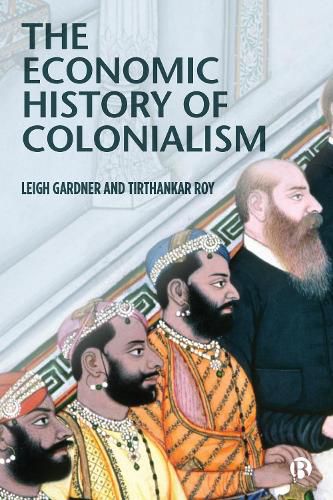Readings Newsletter
Become a Readings Member to make your shopping experience even easier.
Sign in or sign up for free!
You’re not far away from qualifying for FREE standard shipping within Australia
You’ve qualified for FREE standard shipping within Australia
The cart is loading…






This pioneering text provides a concise and accessible resource that introduces key readings, builds connections between ideas and helps students to develop informed views of colonialism as a force in shaping the modern world.
Debates about the origins and effects of European rule in the non-European world have animated the field of economic history since the 1850s. With special references to European colonialism of the nineteenth and twentieth centuries in both Asia and Africa, this book critically reviews the literature on colonialism and economic growth, covers a range of different methods of analysis and offers a comparative approach, as opposed to a collection of regional histories, deftly weaving together different themes. With debates around globalisation, migration, global finance and environmental change intensifying, this authoritative account of the relationship between colonialism and economic development makes an invaluable contribution to several distinct literatures in economic history.
$9.00 standard shipping within Australia
FREE standard shipping within Australia for orders over $100.00
Express & International shipping calculated at checkout
This pioneering text provides a concise and accessible resource that introduces key readings, builds connections between ideas and helps students to develop informed views of colonialism as a force in shaping the modern world.
Debates about the origins and effects of European rule in the non-European world have animated the field of economic history since the 1850s. With special references to European colonialism of the nineteenth and twentieth centuries in both Asia and Africa, this book critically reviews the literature on colonialism and economic growth, covers a range of different methods of analysis and offers a comparative approach, as opposed to a collection of regional histories, deftly weaving together different themes. With debates around globalisation, migration, global finance and environmental change intensifying, this authoritative account of the relationship between colonialism and economic development makes an invaluable contribution to several distinct literatures in economic history.